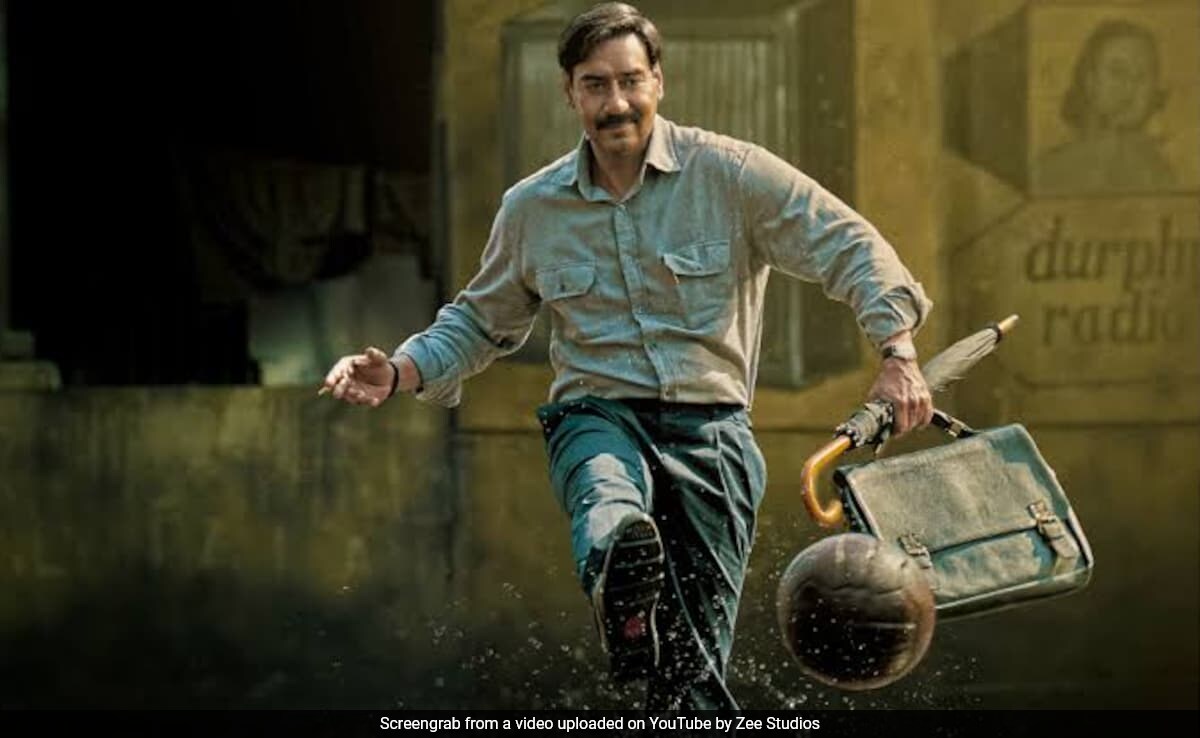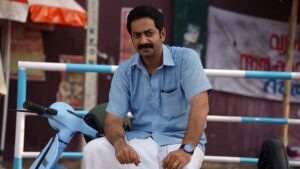Sacrificial depth at the altar of uneven grandstanding

As he scours the country for naturally gifted footballers, talent spotter and coach par excellence Syed Abdul Rahim asked a young PK Banerjee what makes a good player a great one. Pratibha, answers the latter. Talent is of no use without focus, the older man is an obvious joke by emphasizing the cheering female fans of the rising football star. That truism may be valid for good the field A field day in the very film takes its focus away from playing to the gallery and looking for the sweet spot. It finds a few but often misses the mark. Period sports biopics sacrifice subtlety, depth and accuracy on the altar of disproportionate grandstanding.
To be fair, however, it’s not as unapologetically blustery Share Milkha share Or as drably predictable MS Dhoni: The Untold Story Although its runtime is roughly the same as those two films. And it must be somewhere close to replicating the range of relevant thematic concerns defined Chalk it up! India.
Dribbling fast and loose with truth while adhering steadfastly to recorded dates and scorelines, the fieldwhich celebrates the golden age of Indian football by bringing to the screen the story of a legendary male manager and football strategist working in a newly independent country born in the throes of partition, is a hit-and-run exercise marred by ill-advised overkill.
stirring occasionally, the fieldmanaged by be a hindrance Helmer Amit Rabindranath Sharma pits a miserly Rahim against two scheming men who will stop at nothing to thwart the coach’s revolutionary plans to revive one of the world’s most populous – and under-performing – footballing nations.
The on-field action – much of it designed to showcase the skill and stamina of the players Rahim picks – jostles for space with off-field drama that involves nuanced negotiations in and around the hero’s home and field. Played by Ajay Devgn with admirable poise, the Rahim character is everything and above all others in the film. It does more harm than good the field. Nayak’s struggles to bring together a team across regions, languages and cultures overshadows the excitement of the tough games his boys play against strong Olympic and Asian Games opponents.
The sporting action, staged and captured with impressive skill, would have been truly thrilling if the two commentators – played by Vijay Maurya and Abhilash Thapliyal – were not motormouths. Their constant banter is just one example of how overwriting (which stems from the assumption that the audience needs to be spoon-fed the finer points of the game) destroys important parts. the field.
An unlikely Elvis Presley reference creeps in though the field Rahim does not want to be presented as a larger-than-life rock star. After a 10-1 defeat by Yugoslavia in the 1952 Helsinki Olympics, a sly journalist took a potshot at Raheem. The coach quoted the King of Rock and Roll in reply: “Don’t criticize what you don’t understand… You’ve never walked in that guy’s shoes.”
the field He would have done well to give more play to Rahim’s wife Saira (a bubbly Priyamani), his footballer-son Hakeem and the backstories of the talented youngsters he turned into a formidable football unit. PK Banerjee (Chaitanya Sharma), whose father suffers from cancer, the charismatic Chuni Goswami (Amartya Roy), who led India’s football squad at the 1962 Asiad, should have had Jarnail Singh (Davinder Gill), a stout defender. Punjab, Tulsidas Balaram (Sushant Vedande), a poor and explosively talented 19-year-old picked from Secunderabad, and Peter Thangaraj (Tejas Ravishankar), a Lankan goalkeeper who stands tall against the most feared strikers.
The story and screenplay (credited to several writers including Saiwan Quadras, Ritesh Shah, Aman Rai and the director himself) instead give us a pair of saboteurs – Bengali gentlemen with a pathological hatred of Rahim’s performance. Among them is a snooty journalist (Gajraj Rao) who thinks Indian football should belong to him. Another is a federation official (Rudranil Ghosh) who pooh-poohs the national coach’s strategy to build a pan-Indian team instead of drawing on Bengal’s vast talent pool. They are the bad guys – parochial, myopic and self-serving.
Since the film is about a Muslim hero of the Nehruvian era who masterminded one of the most memorable episodes of Indian football ever, the journo and the official are the film’s alternative punching bag. Desperate to see Rahim fail in his endeavours, the two Calcutta men sat in the stands muttering dejectedly under their breath or plainly fell silent when the Indian team put on a good display. There are worse. People from the single state are often seen attending football federation meetings in the film with a single agenda to stop Rahim. Except for one mild-mannered official (Baharul Islam), who consistently advocates for the embattled coach, they are all full of bile.
For perspective, the All-India Football Federation was founded in 1937. The Football Association of India, the governing body of the game in Bengal, is only one part of the larger organization. The suggestion that a state official could have taken over the management of the game in the early 1960s is the kind of dramatic license that ideally should not have been placed in a film based on a true story.
There is a song in the film – Team India Hai Hum – that is instantly irresistible. In the 1950s, the Indian football team was called just that – the Indian football team. ‘Team India’ emerged decades later as a branding exercise when, after economic liberalisation, the country’s sports bodies started partnering with corporate bodies to promote various disciplines.
To increase conflict, the field Returns an array of known ticks. A woman delivers a pep-talk when shocking news threatens to break Rahim’s spirit. With India’s participation in the 1962 Asiad – which forms the film’s climax – under a cloud, the man makes a difficult decision about his son. The mob in Jakarta turned against the Indians, leading to riots and chanting in the streets and stadiums. What can go wrong goes wrong for the team.
Rahim, the man that he is, takes it all on the chin. The lead actor gets into the skin of the character without breaking a sweat. But the film is hardly on firm footing. Maidan narrates an overarching, poignant-literary-fantasy that struggles to balance the realistic and necessary with its unwavering goal of driving the audience into a frenzy.



